World Pangolin Day: On the deadly trail of pangolin poachers
Endangered mammals highly sought after in Asia for their scales
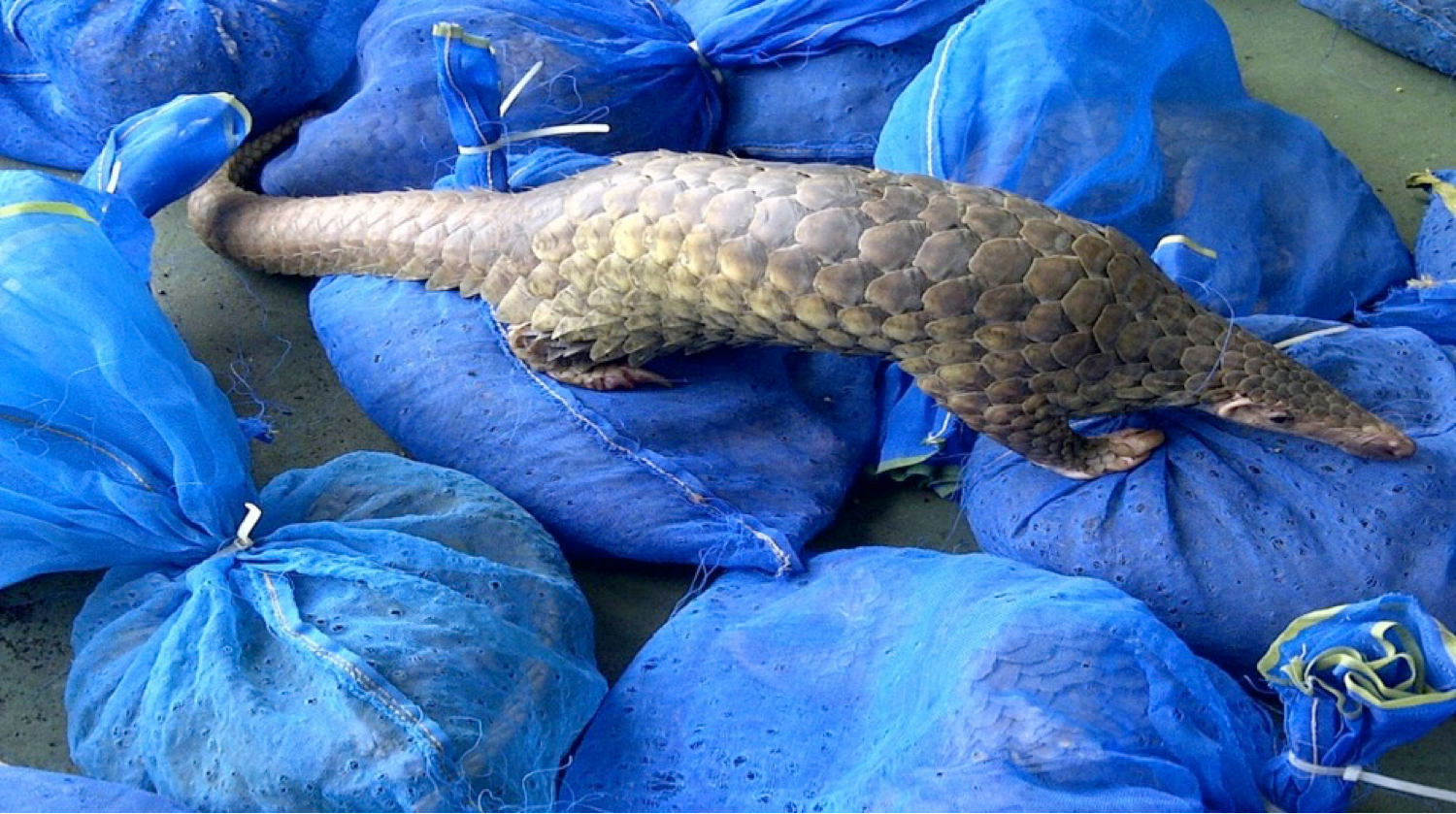
Your support helps us to tell the story
From reproductive rights to climate change to Big Tech, The Independent is on the ground when the story is developing. Whether it's investigating the financials of Elon Musk's pro-Trump PAC or producing our latest documentary, 'The A Word', which shines a light on the American women fighting for reproductive rights, we know how important it is to parse out the facts from the messaging.
At such a critical moment in US history, we need reporters on the ground. Your donation allows us to keep sending journalists to speak to both sides of the story.
The Independent is trusted by Americans across the entire political spectrum. And unlike many other quality news outlets, we choose not to lock Americans out of our reporting and analysis with paywalls. We believe quality journalism should be available to everyone, paid for by those who can afford it.
Your support makes all the difference.The past year has seen the pangolin hit the headlines for all the wrong reasons.
Soon after the outbreak of coronavirus, researchers named the scaly ant-eater as the possible animal source of the virus, based on genetic analysis showing a 99% match between Covid-19 and a virus that pangolins carry.
Listed as critically endangered, pangolins are highly sought after in Asia for their scales, due to the unproven belief that they have medicinal qualities, and their meat.
Now pangolins have all but disappeared from China and parts of south-east Asia, transnational organised criminal groups seek them out across Africa.
In Zambia, the SAPU KAZA is a special rapid-response, anti-poaching unit in Zambia’s Kafue National Park established by non profit Game Rangers International to protect pangolins and all other wildlife.
Stop the Illegal Wildlife Trade
We are working with conservation charities Space for Giants and Freeland to protect wildlife at risk from poachers due to the conservation funding crisis caused by Covid-19.
Help is desperately needed to support wildlife rangers, local communities and law enforcement personnel to prevent wildlife crime. Donate to help Stop the Illegal Wildlife Trade HERE
Julius Miyengo is Commander of the KAZA unit. “In December, thanks to intelligence from an informer, we were told about an individual interested in capturing and trading live pangolin. The unit tracked the individual for some days before successfully apprehending him while he was in possession of a live pangolin inside a sack.
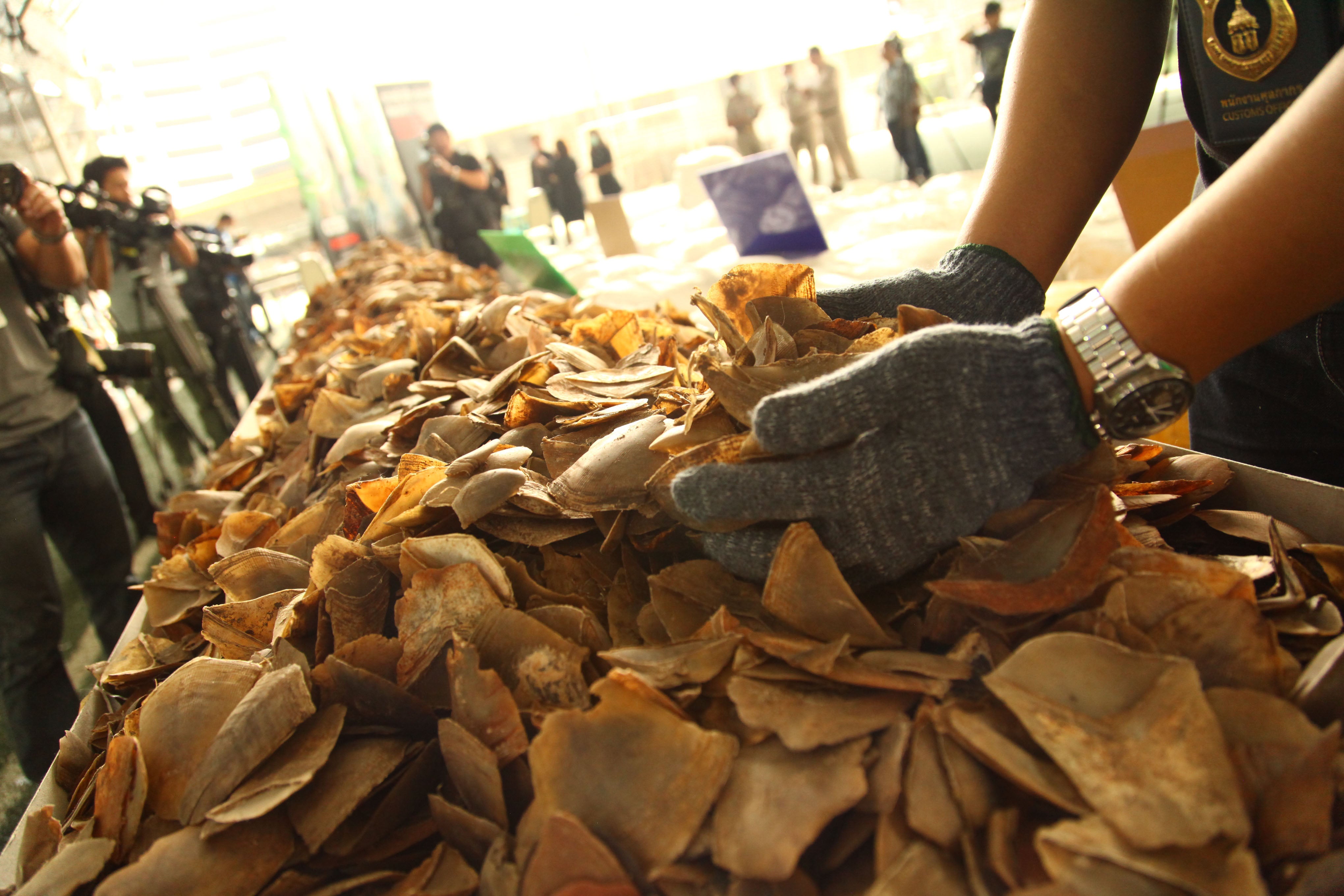
“The punishment in Zambia is [a prison sentence of] at least five years,” adds Mr Miyengo. “It makes a difference [to have a strong punishment]. I’m hopeful that’s what he gets.
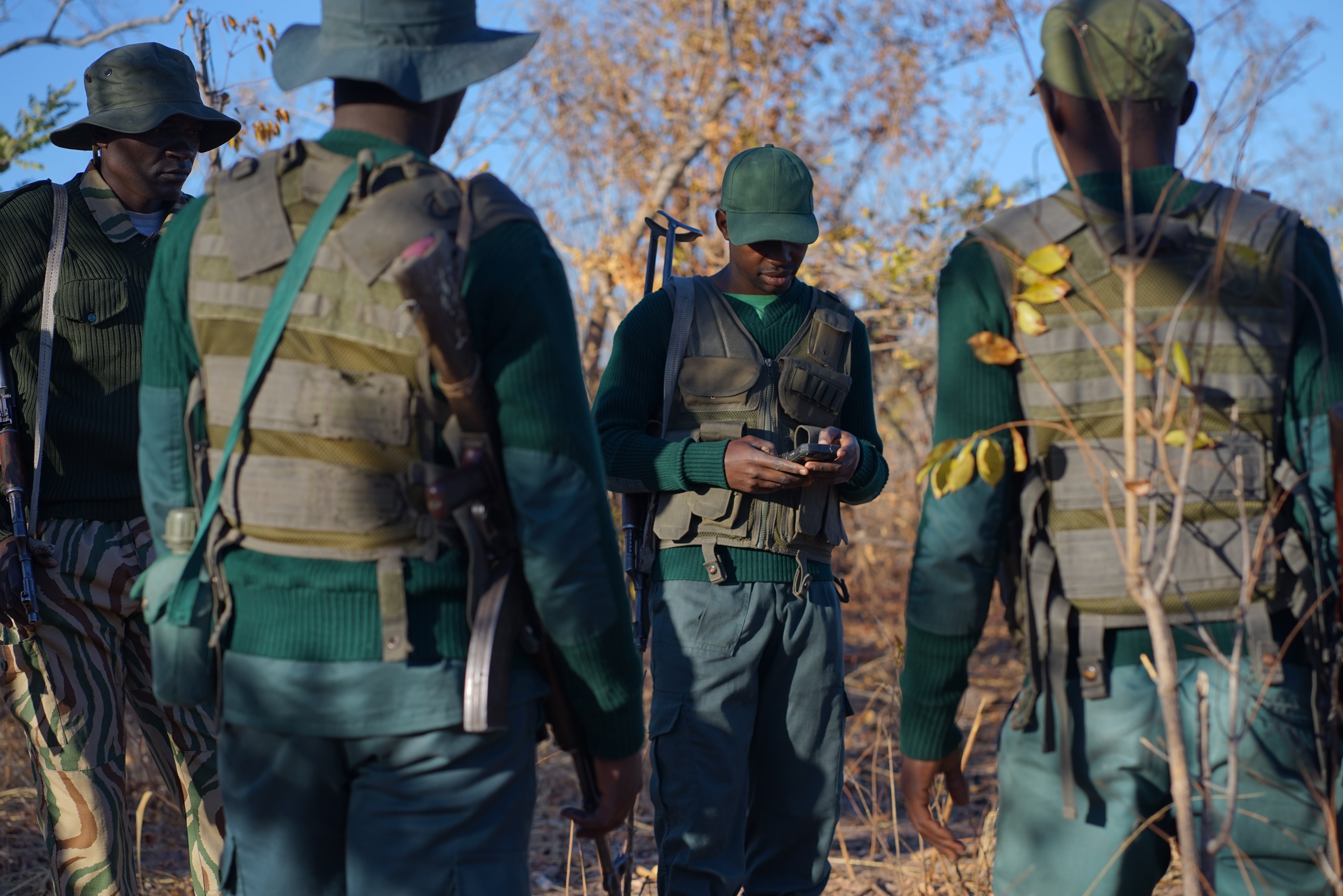
“Our intelligence-led anti-poaching work acts a deterrent to would-be poachers, meaning it is rare for us to have a case of pangolin poaching. But we know that the demand is there, and that is worrying.”
Ahead of World Pangolin Day on 20 February, the Independent’s Stop The Illegal Wildlife Trade campaign celebrates the work being done to stop the poaching and trafficking of pangolin, and other endangered animals.
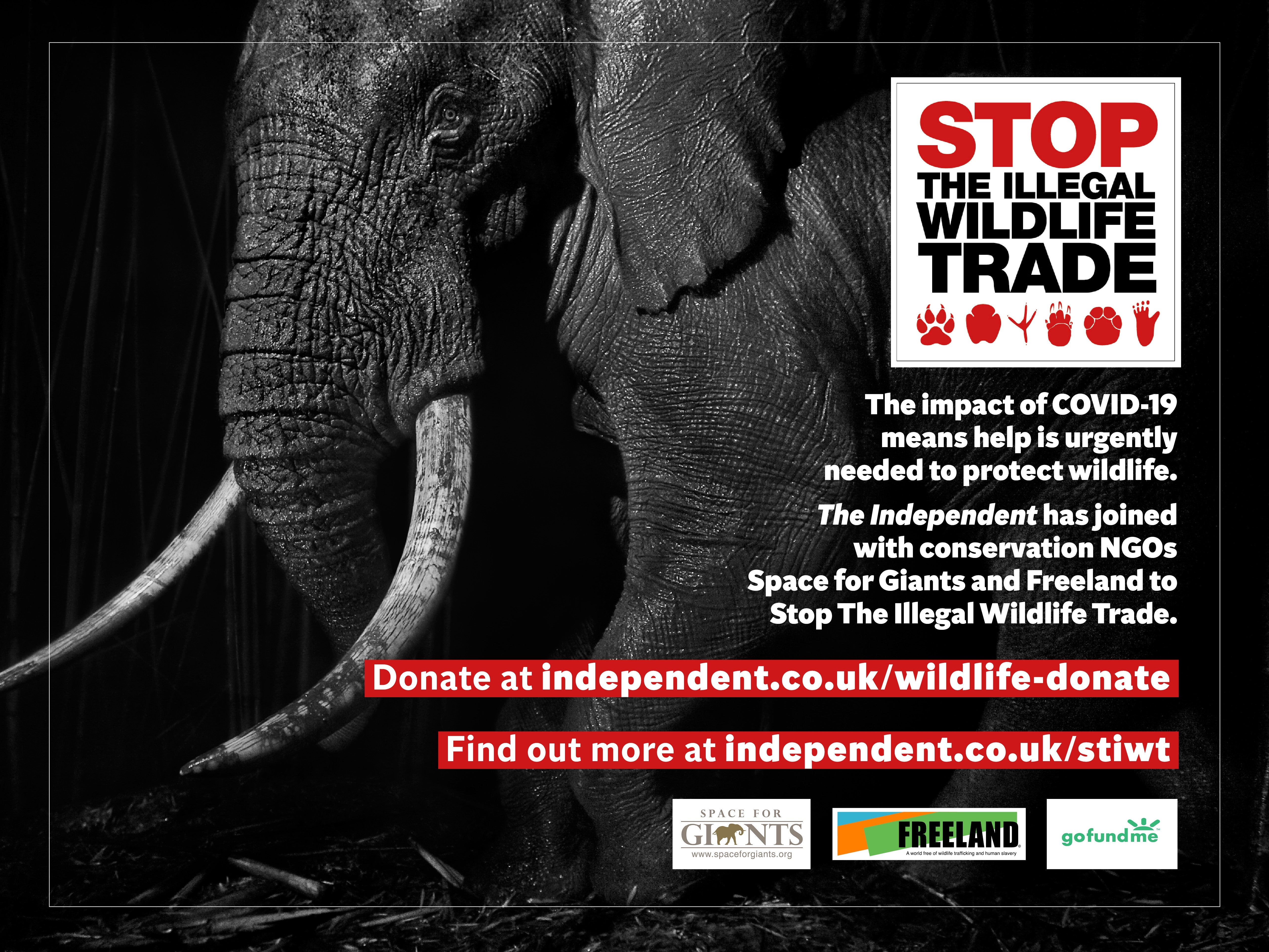
Due to their highly endangered status, and any apprehension of a pangolin poacher is considered a huge success by conservationists and law enforcers alike.
However, despite the pangolin that was rescued by the SAPU KAZA team being rushed to a specialist vet, sadly it died four days later.
This highlights the need for specialist live animal welfare training, along with a pangolin emergency kit to allow the unit to begin rehydrating live animals earlier. All this can only be achieved through more funding.
Space for Giants, one ofThe Independent’s Stop The Illegal Wildlife Trade campaign’s charity partners, helps to train and equip rangers, including SAPU KAZA. We are raising funds to support their frontline protection work in Zambia and many other countries.
“Proactive anti-poaching like this that is driven by local intelligence and working with local people, rather than against them, is by far the most effective way to conserve habitats and disrupt wildlife crime,” says Guy Disney, who manages Space for Giants’ EU-funded ranger training programme.
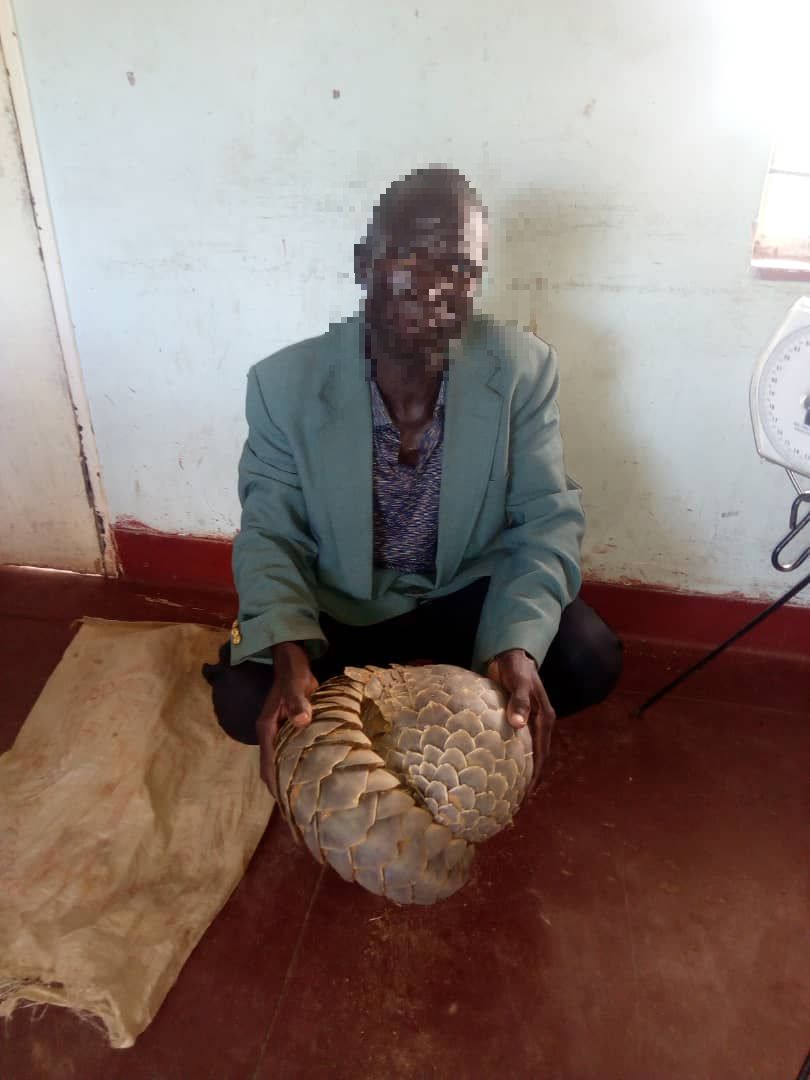
“Space for Giants works with organisations like GRI to support state authorities as they bring wildlife protection and law enforcement to the same high levels across this landscape. This protects species and their habitats, but it also protects the natural resources relied upon by millions of people.”
The Independent’s Stop The Illegal Wildlife Trade campaign also partners with NGO Freeland to end wildlife trafficking and crack down on the demand for wildlife products.
In June, pangolin scales were removed from an official listing of ingredients approved for use in traditional Chinese medicine. Yet despite this commitment, The Independent reported how the Chinese government continues to support the sale of pangolin parts for use in traditional medicine.
And recent discoveries of tonnes of pangolin scales in Nigerian warehouses, ports and transit hubs have revived fears among conservationists that the pangolin will be trafficked to extinction.
You can help by donating to the Stop The Illegal Wildlife Trade campaign to pay for vital wildlife protection projects implemented by Space for Giants and Freeland. To donate click here.
While theories linking pangolins to the outbreak of coronavirus have since been disproved, one upside for the pangolin’s PR machine is an increased global awareness of plight of the world’s most trafficked mammal.
Join our commenting forum
Join thought-provoking conversations, follow other Independent readers and see their replies
Comments